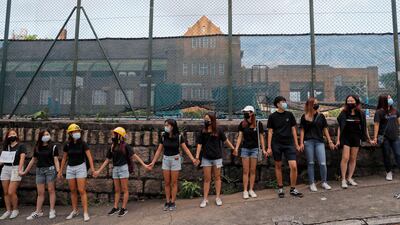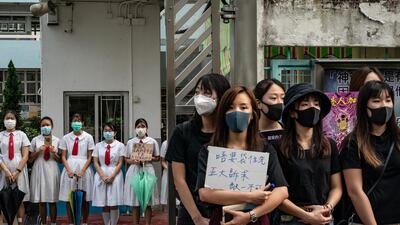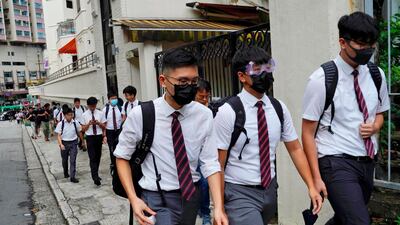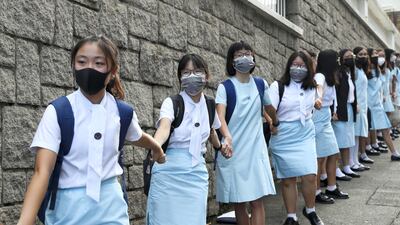Fitch Ratings downgraded Hong Kong as an issuer of long-term, foreign currency debt for the first time since 1995, saying that the territory’s recent political turmoil raises doubts about its governance.
The rating was lowered to AA from AA+ with a negative outlook, the company said in an emailed statement Friday. The last Fitch downgrade of Hong Kong took place before the return of the former British colony to China.
“Months of persistent conflict and violence are testing the perimeters and pliability of the ‘one country, two systems’ framework that governs Hong Kong’s relationship with the mainland,” according to the statement. “The gradual rise in Hong Kong’s economic, financial, and socio-political linkages with the mainland implies its continued integration into China’s national governance system, which will present greater institutional and regulatory challenges over time.”
That closer integration is consistent with narrowing the difference between the ratings of the two, Fitch argued. It currently rates the People’s Republic of China at A+ with a stable outlook.
Months of large-scale protests and unrest in the city have unnerved investors and raised the prospect of capital outflows from the financial hub, long seen as a safe haven. However, the spark for the protests was a proposed extradition law that would blur the boundaries between the city’s legal system and that of the Communist mainland.
“Ongoing events have also inflicted long-lasting damage to international perceptions of the quality and effectiveness of Hong Kong’s governance system and rule of law, and have called into question the stability and dynamism of its business environment,” Fitch said.
”Hong Kong is definitely entering an economic recession, as the protests deal a blow to the city’s tourism and domestic consumption,” said Iris Pang, an economist at ING bank NV. “But I don’t think the issues of demonstrations and weak governance will last forever, and the financial industry will remain stable. So the situation won’t be so bad in the longer term.”
The city’s gross domestic product will grow by 1 per cent this year and 1.4 per cent in 2020, she added.
S&P Global Ratings last week said that despite the turmoil, it believed that the long-term rating was well-supported at the current level of AA+ with a stable outlook.
“The high-income Hong Kong economy, the government’s sizeable fiscal reserves, and the economy’s strong external position,” provide support for the current rating, analysts Kim Eng Tan and Rain Yin wrote in a research report. However, the “strong credit fundamentals could erode over time if weak economic performance persists and if fiscal flexibility and performance are structurally impaired.“







